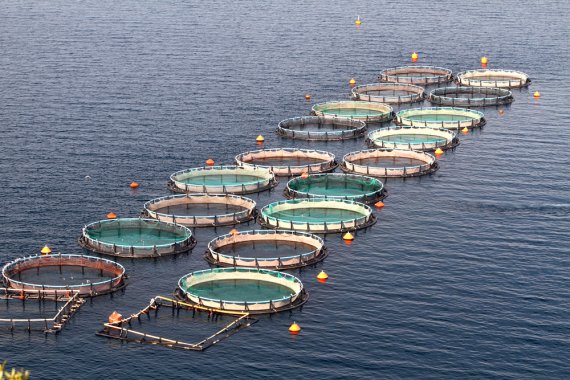Fish farming in Greece, ©Shutterstock
Worldwide, more than 300 species of fish are farmed, among them salmon, catfish and tilapia. To go on being able to feed the world population, this aquaculture needs to expand. It can do so successfully with the help of breeding programmes, thinks Komen. His aim is to select fish which are more resistant to disease and metabolize feed more efficiently. He also wants to select for fish characteristics which are directly related to health, such as oxygen uptake capacity.
Resistance
Selection for health, resistance and efficient feed conversion can help improve growth by more than 10 percent per generation, shows Komen’s research. This makes breeding programmes for fish very economically viable, he stated in his address.
Circular
Komen wants to see fish farming becoming part of a circular economy and address the implications of climate change for fish farming. He also wants to select for fish which are more able to digest alternative diets based on algae and insects. This requires smart breeding programmes using knowledge about DNA, so that the breeder can link several useful characteristics with particular patterns of DNA variation, and select the best-performing fish.
Greece
Komen works with fish farms in several countries to develop breeding programmes which match their environment and wishes. For example, he selects better bass and bream in breeding programmes in Greece, and he has breeding programmes for barramundi in Singapore and tilapia in Ethiopia. He also works with the international research institute Worldfish on designing a selection programme for Nile tilapia, and he will soon start a breeding programme in the Netherlands for yellowtail, a small species of tuna. Komen collaborates closely with the aquaculture group at Wageningen Livestock Research.

